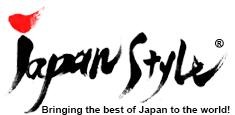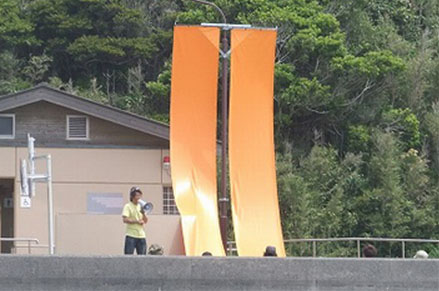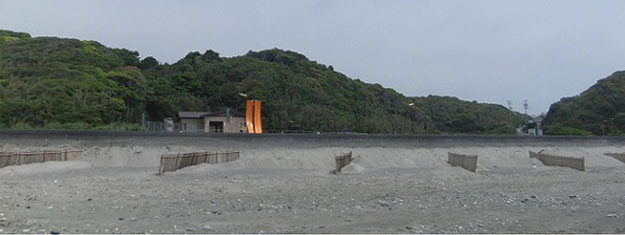Many of you may have already been to the beach to enjoy the summer.
Unfortunately, many were victimized by the Tsunami caused by the Tohoku Earthquake. What would you do, if an earthquake and the Tsunami occur at the very moment that you were in the sea?
The “orange banner” was developed, after the Tohoku Earthquake, by surfers and life savers who have a close relation to the sea. The danger of Tsunami is not always easily informed by siren or wireless system in time. Here is the interview to Mr. Mineto Ushikoshi of JPSA (Japan Professional Surfing Association) how the orange banner was born and developed as a tool for a visual communication at the beach.
* Pictures: JPWA
The “Orange Banner” gives warning the danger of Tsunami
If you frequently go to the sea, you probably know that the siren sometime can be missed depending on the wind direction. When the siren sound hits the wind blown from the offing it makes the sound much less. After the Earthquake, with the consideration of the fact, the orange banner was devised.
Mr. Ushikoshi tells that one does not physically sense if the scale of the earthquake is less than 3 when swimming in the sea. The sizes or the hoisting ways vary from beach to beach. Some beaches use banners and others have a person who waves a banner similar to a fisherman’s banner.
Get the “Tsunami prevention” knowledge before going out to the sea
At the moment, the Orange Banner is put in place in Kamakura in Kanagawa prefecture, Omaezaki in Shizuoka prefecture and throughout Chiba prefecture. It would be ideal if the orange banners are at hand and the people in charge to hoist them are on standby in case of emergency, But, if not, we should be able to get anything in similar colour and hoist it for others who still are not aware of the danger. Mr. Ushikoshi alerts that it is a manner for us to be prepared, before going to the sea to enjoy, to be knowledgeable how to inform others of the danger and to come out of the water. It can be anything; you can use the car lights, you can whistle, you can call.
Source: TOKYO FM










Recent Comments